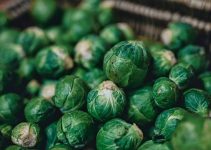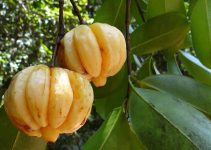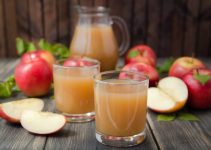Although fruits and vegetables are a rich source of vitamins, minerals, and fiber, they also provide us with a certain amount of carbohydrates and natural sugar.
The consumption of fruits and vegetables is essential for the proper functioning of health.
Therefore, it is better that you consume those that are low in sugar and high in fiber and water.
Below you will find 15 fruits and vegetables for a low carbohydrate diet.
Low-Sugar Fruits
1. Apple
A medium apple (182 g) gives us 25 g of carbohydrates, 19 g of sugar, and 5 g of fiber.
In addition, apples contain phytochemicals that aid weight control, are diabetes-friendly, and improve lung, bone, and digestive health.
You can consume the apple as a snack or add it to oatmeal.
2. Strawberries
Strawberries are fruits that are high in fiber and low in sugar.
In fact, a cup of strawberries (144 g) gives us:
- 3g of fiber
- 7g of sugar
In addition, strawberries provide us with vitamin C and minerals such as calcium, potassium, magnesium, and phosphorus.
Strawberries are versatile. You can consume them in salads, with oatmeal, or in smoothies.
3. Watermelon
Watermelon provides us with a large number of nutrients.
A cup of watermelon (154 g) gives us:
- 9.5g of sugar
- 141g of water.
Not only that, but it also contains vitamin C, Folate, Lycopene, Choline, Magnesium, Calcium, and Phosphorus.
In this way, watermelon helps control weight as it prolongs the feeling of satiety and reduces blood pressure and body mass index.
While watermelons have a high glycemic index, they have a low glycemic load. However, moderate consumption is recommended for people with diabetes.
4. Orange
An orange (184 g) gives us:
- 160g of water
- 17g of sugar
- 4.42g of dietary fiber.
In addition, orange is a fruit rich in vitamin C, antioxidants, vitamin A, lutein, beta-carotene, magnesium, folate, potassium, calcium, and zeaxanthin.
You can consume it fresh, in juices, or salads.
5. Blackberries
Blueberries improve insulin sensitivity and increase fat oxidation in obese men.
In addition, blueberries act against diabetes.
100 g of blueberries provides us with only:
- 5g of sugar
- 5g of fiber
- 10g of total carbohydrates.
6. Grapefruit
Grapefruit is excellent for breakfast as 100 g of grapefruit contains 7g of sugar.
In addition, it is a rich source of vitamin C, a powerful antioxidant.
7. Cantaloupe
Cantaloupes are excellent allies for a low-carbohydrate diet since 100 g provides us with:
- 1g of fiber
- 8g of sugar
It can be eaten fresh or in salads.
8. Avocado
Avocados are recognized as a superfood thanks to the number of nutrients they provide.
100 g of an avocado provides only:
- 0.66g of sugar
- 6.7g of fiber
- 8.53 g of carbohydrates
In addition, it contains vitamins A, C, and E, proteins, folate, and copper.
Low-Sugar Vegetables
1. Cucumber
Cucumber is a vegetable composed mainly of water and has very little sugar.
100g of cucumber gives us 95 g of water and only 2g of sugar.
2. Asparagus
Asparagus are beneficial vegetables for low-calorie diets as they provide almost no fat or sugar.
In addition, they contain a large number of nutrients beneficial to the health of the body.
100 g of asparagus gives us 2g of sugar, 2g of fiber, and only 0.1g of fat.
Asparagus can be used both as a diuretic and an ally to accelerate the metabolic process.
3. Iceberg Lettuce
Iceberg lettuce is beneficial for weight loss because it prolongs the feeling of fullness.
A 100 g serving of iceberg lettuce contains:
- 1g of fiber
- 2g of sugar
- 96g of water
4. Broccoli
Broccoli is a vegetable widely used in diets due to a large number of nutrients it provides.
In fact, 100 g of broccoli contains:
- 2g of sugar
- 3g of fiber
It also provides us with dietary fiber, vitamins A, C, D, E, and K, and minerals such as potassium, iron, calcium, zinc, and phosphorus.
5. Brussels Sprouts
For people with diabetes, Brussels sprouts are one of the healthiest foods on this list.
A 100g serving of Brussels sprouts contains only:
- 2g of sugar
- 4g of fiber.
6. Cabbage
Cabbage is another vegetable that is beneficial in a low carbohydrate diet.
100 g of cabbage gives us 3 g of fiber, 6 g of carbohydrates, and 3 g of sugar (mainly fructose and glucose).
7. Spinach
Spinach helps prolong the feeling of fullness and reduces calorie intake.
A 100 g serving of spinach contains very little sugar and 91 g of water.
It can be eaten both raw and cooked.





